|
Christmas marks the coming of the Christ Child into our world. Gabriel told Mary that the baby she would bear shall be named Emmanuel, meaning “God is with us.” He is faithful and always encounters us where we are. One of the ways the Church communicates this is by turning pagan festivals into Christian ones. The calendar used during the life of Christ was the Julian calendar. According to that, December 25 was the day the winter solstice was celebrated as light began to show more and more after the darkest and longest days. The pagan festival of Juul (Yule) would be celebrated by lighting fires to “symbolize the heat and light of the returning Sun.” In the Church, we not only celebrate the nearness of the sun in the days to come (winter in the Midwest can indeed be long and dreary), but also the nearness of the Son of God who came to embrace those in the darkness. As a baby, God allowed Himself to be embrace-able by us and ultimately sacrifice-able. This intimate vulnerability is exactly what would save us. Indeed, tidings of great joy! If you attend Mass on Christmas Night, you will hear “The people who walked in darkness have seen a great light; upon those who dwelt in the land of gloom a light has shone” (Isaiah 9:1). The world around us can feel dark and desolate, but on Christmas Eve we hear “No more shall people call you ‘Forsaken,’ or your land ‘Desolate,’ but you shall be called ‘My Delight,’ and your land ‘Espoused.’ For the LORD delights in you” (Isaiah 62). How does it feel to hear these words during this Christmas season? We don’t have to search too hard for news that is discouraging. We are facing battles of many kinds and sometimes we feel stuck in the trenches with only a sliver of hope for a ceasefire, let alone a victory. The Good News of the Gospel of St. John proclaims, “the light shines in the darkness, and the darkness has not overcome it” (John 1). Even when we feel defeated, we can wholeheartedly know that we will be victorious when we welcome Jesus into our hearts. Will our hearts be like a crowded inn concerned more with the demands of the world and not aware of who is standing at the door? Or, will our hearts be a humble stable bustling with life and ready for any opportunity to welcome our neighbor? No matter the darkness you feel, see, or experience in life right now, Jesus was born of Mary so that He would feel, see, and experience it all in flesh and bone with you! The Evil One tries to lead us into despair, but we know that Jesus was born to die for us to defeat sin once and for all. Evil can only exist in the dark. When it’s brought into the light, it is exposed and defeated by the Light of the World, the Logos, the Alpha and the Omega, the King of Kings. As you turn on your Christmas lights, light a candle, or make a fire in your fireplace throughout this Christmas Season, remember that Jesus is the true gift that shines light into your life. At my undergraduate commencement ceremony, our speaker quoted the lyrics of a Leonard Cohen song. These words continue to bring me hope when I feel discouraged or broken. “Ring those cracked bells that still can ring. Forget your perfect offering. There is a crack, a crack in everything. That’s how the light gets in.” Imagine the light from the Star of Bethlehem streaming through the cracked walls of the stable on that first Christmas. Let’s be on the lookout for the Light of Christ shining through the cracks in our hearts so we can reflect that light for others. Merry Christmas! **This photo is from: http://www.intothedeepblog.net/2016/01/bethlehem.html**
0 Comments
There are many names for Mary, originating from different times and places around the world. Our Lady of Guadalupe stands out from the rest as she is the only one who is depicted pregnant. A doctor examined the image and determined that her stomach had the exact dimensions for a mother in her ninth month of pregnancy. So, it is particularly fitting that we celebrate her in Advent as we prepare for Mary to give birth to the King of kings. The four candles we light around the Advent wreath symbolize hope, peace, joy, and love. As the moon reflects the light of the sun, Our Lady of Guadalupe reflects the light of her Son. She radiates hope: Pregnancy brings hope because a new creation is made known. God could have chosen to save us in any way. Yet, He chose to be begotten in the womb of a young girl from a small town. One of my beloved theology professors says, “God became man so that He could have a mom!” How beautifully mysterious is that?! The Christ Child was hidden in a womb for nine months and then lived a quiet life at home with his parents for thirty years. He grew up alongside peers and shared in rich conversations with the people He encountered. He entered the darkness of human frailty so that He could bring the light of God’s promise. Winter can sometimes reflect the season of our mind, heart, or soul. We can feel hopeless; spring can feel far away. In 1529, the first Bishop of Mexico was beginning to lose hope. Human sacrifices in the area were impacting the hearts of the people he was trying to evangelize. He prayed that Mary would intervene and send him flowers from Spain to assure him that she heard his prayers. Three years later, Our Lady appeared to a peasant named Juan Diego. The bishop had difficulty believing the news, so Juan Diego asked for a sign from Our Lady to assure the bishop that his testimony was true. On the spot where Mary asked the bishop to build a church, Juan found dozens of roses that originated from Spain. Not only were these roses not from the area, but it was out of season for Mexico in December. She radiates peace and joy: When life gets chaotic, the arms of a loved one are especially comforting. Sharing an embrace with someone who truly knows and loves us gives us a sense of peace and fills us with joy. In sharing these very human experiences of loving care and consolation, we can be encouraged by these words that Our Lady spoke to Juan Diego: “Listen, put it into your heart, my youngest and dearest son, that the thing that frightens you, the thing that afflicts you, is nothing: Do not let it disturb you… Am I not here, I who am your Mother? Are you not under my shadow and protection? Am I not the source of your joy? Are you not in the hollow of my mantle, in the crossing of my arms? Do you need something more? Let nothing else worry you or disturb you.” In the rush of the world around us during these weeks leading up to the birth of Christ, we can gaze at the face of Mary, full of joyful expectation awaiting her Child. We can picture her cradling the baby Jesus in her arms and remember His presence with us means the best is yet to come. After all, Jesus Himself says in John 10:10, “I came that you may have life and have it more abundantly!” She radiates love: In this imagery of Mary as a mother, Isaiah 49:15 comes to mind: “Can a mother forget her infant, be without tenderness for the child of her womb? Even should she forget, I will never forget you.” Devotion to Our Lady of Guadalupe, especially in the Americas, is due to the miracle of her apparition and her answering to the needs of her spiritual children. On the Cross, Jesus gave Mary to John and John to Mary. John as the “beloved disciple” represents all of us. We are invited to be childlike and purely offer ourselves to Mary as her children and receive the motherly love Mary wants to give to us. May you have a blessed Advent waiting in joyful hope for Mary to give birth to the savior of the world and of your heart. **This photo is from https://springfieldop.org/our-lady-of-guadalupe-the-maternal-face-of-god/**
In college, I spent a semester living in the heart of Rome. The Cathedral of John Lateran was a short walk away and I visited it a number of times. Many may wonder, why do we have a feast that celebrates a building? I would like to reflect on that question today because this feast can unite, ground, and inspire us. Unite us One of my favorite parts of being Catholic is being able to find a home no matter where I am in the world. Christ is our shepherd and said he would never abandon us. There is a bishop who overlooks every square foot of land in the world. Though some of the most rural dioceses may stretch with many miles between churches, we belong to a local flock. We are not alone. When I travel, I can find a Catholic Church and feel at home even if I do not speak the same language! Rome feels like home because it is where the Holy Father resides, the representative of the head of the Body of Christ. Though the pope lives in Vatican City, he is the Bishop of Rome. The seat of the bishop is at the Cathedral. In this case, the Church of St. John Lateran. So, no matter where we live in the world, we all call the Pope, “Papa.” The Seat of Peter then can be a sign of unity of the one Church. Ground us We are human and God meets us in a time and place. Though we never want to grow too attached to things of the world, the world is where we encounter Our Lord through our senses. When people mention grounding techniques, it usually means to stop and notice where you are, what you are sitting or standing on, what you hear, what you see, and what you taste. This exercise is a go-to for returning to the here-and-now. God meets us right now. We do not want to miss out on today by worrying about tomorrow. Though God can meet us anywhere, we can notice the difference when we gather together in a space dedicated to worship. As a marriage counselor, I often encounter the objection to getting married in the church due to other aesthetic locations being preferred for wedding venues. Fr. Mike Schmitz does a beautiful job explaining this by pointing out the reality of laying down our lives in front of the Body, Blood, Soul, and Divinity of Jesus Christ. He humbled himself to become bread for us and we can humble ourselves to be in His Real Presence. Yes, the Franciscan in me loves nature, but sacraments such as marriage belong in the sacred space of churches. Our vocations are not about us, but about following Christ in the Church and being a gift to the Kingdom of God. Inspire us I have heard the argument that parishes spend too much money on architecture and design of church buildings and instead should give that money to the poor. Though I am an advocate for caring for the poor, it is not an “either-or” dilemma, but rather a “both-and” situation. Throughout Scripture, we read about the materials, time, and attention that went into building the Tabernacle and the Ark of the Covenant. The space in which God dwells is sacred. He is the King of the Universe and gives us the gifts and talents we return to him through our jobs. When we consecrate our work to God, it is an act of praise. In Rome, there are incredible, awe-inspiring churches on every street corner. I hope that each one of you gets to visit Rome Sweet Home someday or at the very least visit a local cathedral or church that is known for its beauty. As the media makes it seem as if we are divided, this feast reminds us that we are united. We all share a home where Christ built His Church. Let us take care of our spiritual homes in our neighborhoods. After working on a parish staff, I am aware of all the work that goes into keeping a parish functioning and open to everyone. As members of this one family, we can all chip in to do our part. Let us pray this week about what our Father may be asking us to do in our local and universal Church.
I’m writing this blog while sitting on a patio at an AirBnB in Sedona, Arizona overlooking a beautiful landscape of red rocks and green trees. My sister is walking hand-in-hand in the grass with her 10-month-old daughter who just learned how to walk. The sun warms my skin, and the breeze cools my face after a challenging hike this morning. Being immersed by the great outdoors draws my mind to St. Francis of Assisi. I chose him (or some say that he chose me) to be my Confirmation Saint because of my love for peace and creation. The views of town from this house on a hill remind me of the small mountain town of Assisi. When I visited there, I could feel St. Francis’ presence as I was awestruck by the beauty around me and the peace within me. His tomb is one of the most peaceful places I have ever been. The energy of his presence is palpable in that room, and his legacy continues as people flock to where his bones eternally rest in peace. Energy is a popular term around Sedona since this area is believed to be a “vortex.” A vortex is a “swirling center of energy that can produce a range of physical, emotional, and spiritual effects.” (Sedona.net). According to VisitSedona.com, “Sedona has long been regarded as a place both sacred and powerful. It is a cathedral without walls. It is Stonehenge not yet assembled. People travel from across the globe to experience the mysterious cosmic forces that are said to emanate from the red rocks.” Energy is indeed a scientific reality; all creation gives off a certain energy. A woman has a feminine energy that complements a man’s masculine energy. Someone can either bring enthusiastic energy into a room or suck all the positive energy out of it. The Church embraces science and affirms scientific truth as God’s truth. St. Francis loved creation and had a deep spirituality. At the front door of a Sedona New Age shop, a St. Francis statue welcomes patrons. The New Age belief is that “there is no spiritual authority higher than personal experience.” St. Francis loved creation because he loved the One who created it all. He encountered God in all things, even though everything is not God. On one of the main vortexes surrounded by valleys and mountains rests The Chapel of the Holy Cross. It proclaims peace over all who enter. The larger-than-life crucifix is a reminder that Jesus is who we must seek in the heart of all creation. The Pontifical Councils for Culture and Interreligious Dialogue released a document in 2003 entitled “Jesus Christ the Bearer of the Water of Life: A Christian reflection on the New Age.” The following is a brief excerpt: "Gaia, Mother Earth, is offered as an alternative to God the Father… there is talk of God, but it is not a personal God; the God of which New Age speaks is neither personal nor transcendent… belief in cosmic powers and some obscure kind of destiny withdraws the possibility of a relationship to a personal God revealed in Christ. For Christians, the real cosmic Christ is the one who is present actively in the various members of his body, which is the Church." We all have different ways of praying and experiencing the power of God. If you have a spiritual encounter with nature, give thanks to the Holy Spirit for this beautiful connection to God’s creative energy. St. Francis loved being outside, but he did not make an idol of nature. We should not replace the Creator with creation. The Trinity invites us into a beautiful dance of love that is called “perichoresis.” In a humble attempt to create a metaphor, I could suggest that creation is the ballroom, dance floor, and the music that the Triune God created in order to help us dance with Him more beautifully. Creation brings us joy, peace, and refreshment, but it is not the ultimate source. We need to let God lead. Like an astonishing view on a mountaintop after an arduous hike, the Chapel of the Holy Cross radiates the message of mercy. Mercy is most beautifully defined as love touching misery. Though we suffer in this life, the love of God is always pursuing us. After the Feast of St. Francis, we celebrate the Feast of St. Faustina. She was an advocate for Divine Mercy and the Church has embraced her diary. She writes: “Creation is contained in the inmost depths of the Divine mercy more deeply than an infant in the mother's bosom.” (Diary 421, 1076) “Rejoice, all you creatures – she wrote – for you are dearer to God in His infinite mercy than a baby to his mother's heart.” (Diary 423) “Jesus, Eternal Light, enlighten my mind, strengthen my will, inflame my heart and be with me as You have promised, for without You I am nothing.” (Diary, 495) St. Faustina and St. Francis were both aware that without God they were nothing. Autumn reveals that beauty can come from “falling” or “dying.” As the leaves die and fall to the ground, they fill the sky with beautiful color before landing gently on the firm foundation. As this new season begins, I invite you to go on a walk outside and take Faustina or Francis with you. They are wonderful companions and would love to help you find the love, peace, energy, and mercy of Jesus Christ. Any nature that captures your attention is just a tiny glimpse of the masterpiece that God created in YOU! Here is a PDF of St. Francis’ Canticle of the Creatures: https://www.xavier.edu/jesuitresource/online-resources/documents/canticleofthecreatures-whitebackground.pdf Here is a sung version by Donna Cori Gibson: https://www.youtube.com/watch?v=9uxGrQ5cQpc
When I was first introduced to the Congregation of Holy Cross as a student at Saint Mary’s College at Notre Dame, I was confused why their patron is Our Lady of Sorrows. I see myself as a cheerleader for my loved ones and try to bring joy to everything I do in life. Studying psychology and theology taught me more about the depths of joy and the paradox of holding joy and sorrow simultaneously. Joy and sorrow are not analogous to happiness and sadness. So, I can still bring joy even when accompanying others in sorrow. In the first letter from St. Paul to the Corinthians, we learn that faith, hope, and love are the three things that will last forever. We cannot have one without the other two. We have hope because we have faith and love. As a Christ-centered marriage and family therapist, I have a couple of images of the sorrowful mother in my office so my clients are reminded that they are not alone in their suffering. The Church provides a way to reflect on the Seven Sorrows of Our Lady. In each of these arrows that pierce her heart, she is either holding, searching for, or gazing at Jesus. The Seven Sorrows of Mary:
At the Wedding at Cana, Jesus told his beloved mother that if he began his public works, their humble life together as a family would never be the same. He would no longer be just her son but recognized as the Savior of all. She would no longer be just his mother but the mother of all. She consented to this road of suffering because she trusted God and meant her words at the Annunciation, “may it be done to me according to your word.” (Luke 1:38) Imagine Mary at the foot of the Cross. She was full of sorrow watching her son take his last breaths. What kind of mother would she be if she was not sad watching her son suffer? In her tears, she believed (“Blessed are you who believed that what was spoken to you by the Lord would be fulfilled.” Luke 1:45) in the God she knew so intimately and loved with a heart that was not tarnished by sin. So, if it is okay for her to be full of sorrow, it is okay for each of us, too. We must be cognizant that our sorrow does not turn us away from the Cross in despair, but rather leads us toward the Cross in hope. We do not venerate the Cross because it is a torture device, but rather an instrument of salvation. Good Friday is not the end of the story, and Easter Sunday cannot exist without Good Friday. St. Paul wrote to the Romans that “all things work for good for those who love God.” (Romans 8:28) God does not waste anything and does not leave us alone in our sorrow. As Catholics, we believe in redemptive suffering; we can offer our suffering for the redemption of the souls of others. Mary is the first and greatest disciple and her intercession is incredibly efficacious. In my life and the lives of the clients I journey with, I have witnessed that the greatest transformation comes from seasons of sorrow. It is in those most challenging moments that Jesus and Our Sorrowful Mother embrace us with such tenderness and empathy. “For we do not have a high priest who is unable to sympathize with our weaknesses, but one who has similarly been tested in every way, yet without sin. So let us confidently approach the throne of grace to receive mercy and to find grace for timely help.” (Hebrews 4:15-16) Mother Teresa so beautifully says that, “Pain and suffering have come into your life, but remember pain, sorrow, suffering are but the kiss of Jesus - a sign that you have come so close to Him that He can kiss you.” As you carry your crosses this week, may you see it just as a piece of the puzzle that God is building in your story. Jesus is not defined by the Cross; He overcame it. You are not defined by your crosses, either. St. John Paul the Great says, “we are an Easter people and Alleluia is our song.” In tragic circumstances, look for the heroes. In times of darkness, look for the light. I think of a hymn written by Steve Warner that is often sung on the campuses of Notre Dame and Saint Mary’s College. The refrain is: “Cross of our hope, and tree of our salvation, Sown in our land, and spread near and far, Life-giving fruit, our portion and our promise, Ave Crux! Spes Unica!” https://www.youtube.com/watch?v=Lk8fpSzM8LA **This image is from: https://artuk.org/discover/artworks/study-of-the-pieta-127796**
Some weeks in the liturgical calendar are packed with all-stars! I am grateful that one of those weeks happens to be my birthday week. As I write this, I picture the saints lining up in order of their feast days just like we lined up in alphabetical order for lunch in elementary school. In the Cathedral of Los Angeles, Our Lady of the Angels, there is a beautiful tapestry that depicts the diversity of the saints as they stand side-by-side. If this lineup was based on feast day, St. Clare and St. Jane Frances would be next to one another. I imagine they would turn to one another and realize how much they have in common. Some of the many commonalities they share include having a best friend named Francis, founding a religious order, living in Europe, and finding great joy in serving the poor. In the Four Loves, CS Lewis writes, “Friendship is born at the moment when one man says to another ‘What! You too?’” When I studied abroad in Rome during college, I spent a weekend alone in Assisi walking in the footsteps of St. Francis and St. Clare. I prepared for this trip by reading a biography of St. Francis, I, Francis. For me, the most memorable part of the book was imagining Francis listening to Clare sing in the church choir and the way he felt when Clare shared his humble mission, chopped off her beautiful long hair, and donned a simple brown tunic. Visiting St. Clare’s incorrupt body in Assisi was astonishing; it seemed as if I could just wake her up from a nap and ask her all about her friendship with St. Francis. Her beauty radiates from her body today and I could only imagine what others experienced when they encountered her while she was alive. One day, while in grad school, I returned to my room after a retreat to find an icon of St. Jane Frances on my bed. My mom is named Jane Frances, so I was intrigued to learn more about this fascinating saint who experienced both married and religious life. She became a widow at thirty-two after her husband died in a hunting accident. On his deathbed, her husband forgave the man who killed him. Jane, however, was slower to forgive as she was deeply grieving. Eventually, she not only forgave the man, but also became the godmother of his child. Additionally, around this time, she began an eighteen-year-long correspondence through letters with Francis de Sales, who was only a few years older than her. He was the Bishop of Geneva and was the answer to her prayer for a spiritual director. They became fast friends and, as Francis wrote, “God, it seems to me, has given me to you. I’m more sure of it by the hour.” In my book Single Truth, I write how our “yes” is a gift and not an obligation. Love is focused on giving, not receiving. When we are grasping, we are not loving. While writing the book, I went on a yearlong dating fast. During this time, I felt more free to see men as brothers in Christ and not lose myself in the thought that everyone is a candidate for dating and marriage. I did not get distracted by what I may get from a person (i.e. relationship status or affection) and instead focused on being a friend. St. Clare and St. Jane were incredible models for faith and friendship. They both developed deep, authentic friendships with St. Francis of Assisi and St. Francis de Sales. They joined in their mission for the Kingdom and had friendships rooted in charity. To bring our focus back to the tapestry at Our Lady of the Angels, it is essential to notice how the saints are all facing the altar. St. Peter teaches us that keeping his eyes on Jesus allowed him to walk on water, but when he forgot who he was walking to, he sank. In our friendships, especially with the opposite sex, we can get distracted by our fleshly desires and human understanding. We grasp at and rush into something that is often less than what God intends for us. “It’s beautiful to be able to love on earth as we shall love in heaven.” – St. Francis de Sales Article 2347 of the Catechism reads, “The virtue of chastity blossoms in friendship. It shows the disciple how to follow and imitate him who has chosen us as his friends, who has given himself totally to us and allows us to participate in his divine estate. Chastity is a promise of immortality. Chastity is expressed notably in friendship with one's neighbor. Whether it develops between persons of the same or opposite sex, friendship represents a great good for all. It leads to spiritual communion.” Charity is a love that is directed outwardly instead of inwardly. If two people in a relationship try to out-love, out-forgive, and out-serve one another, there is a high probability that they will overcome whatever obstacles they face. St. Francis de Sales wrote to St. Jane Frances, “Never will it be possible for anything to separate me from your soul: our bond is too strong. Death itself would be incapable of undoing it.” As Easter people, we believe that death is not the end for those in friendship with Jesus. When loved ones pass away, we find hope in the Resurrection and look forward to seeing them again in Heaven. These four saintly friends have been powerful intercessors in this life and I am excited to share fellowship with them for eternity! Promotional Image Credit: https://angelusnews.com/voices/why-the-saints-can-do-great-things/
This past week, I had the opportunity to be an extra in The Chosen TV series. The show is currently filming the 4th of 7 seasons and is based on the lives of those who were “chosen” to follow Jesus. Some statistics state that “Season 1 was the largest crowd-funded project of all time raising $10 million from over 19,000 people. After 3 seasons, there have been 110 million unique viewers watching the episodes 520 million times across 175 countries. The whole series will soon be dubbed in 50 languages with plans to subtitle in over 600!”
One word that describes this show and the phenomenon that it’s generated is communion. During this Eucharistic Revival, it’s critical to draw our attention to the one-ness that Jesus desires for His Church: “I pray not only for them, but also for those who will believe in me through their word, so that they may all be one, as you, Father, are in me and I in you, that they also may be in us, that the world may believe that you sent me.” John 17:20-21 Eucharist means “thanksgiving” while Communion means “sharing in common.” Communion is the way we come together to share what we have received from God. A popular motto concerning the show is “it’s not our job to feed the 5,000, it’s only to provide the loaves and fish.” God gives each of us a gift and calls us to the table to share it with others so all can be fed. The world is being fed by diving deeper into the greatest story ever told – Jesus Christ, born in Bethlehem, raised by two devout Jewish parents, and gathering a unique group of friends one-by-one (if you’ve read the Bible, you know the spoilers that He is crucified, laid in a tomb, and then is seen speaking and eating with his friends once again, but that’s not until Seasons 6 and 7). Creating a show requires an astounding number of people to come together to make the final product. Though the focus is on the main cast on screen, it’s important to have background actors bringing the scene to life, set designers making it look realistic, makeup artists transforming characters, crew supporting the cast in between takes, assistant directors helping the director, writers, producers, editors, etc. We are all needed to tell a good story. For example, though a priest is able to say Mass on his own, the celebration of the Liturgy includes the congregation and the various ministers that assist him. God made us for community and that’s a big reason why we are obligated to participate in Mass weekly. Uniting together in prayer, song, and fellowship encourages and enlivens us as we continue to bring life to faith and faith to life as we carry our individual crosses each day. As a TV show, The Chosen has attracted viewers of all backgrounds, cultures, and beliefs. The focus on the historical Jesus unites people because we can all share the experience of being human. In between takes on the hot Utah set, I sat in the air-conditioned tent with hundreds of background volunteers from around the world. Some lived down the street and others flew across oceans to come together for this experience. I met people from all denominations and know that not all were even believers. They were just intrigued by the community that has formed around the show. During the last day of filming last week, the cast was required to strike in union with the Screen Actors Guild. Since the show itself is independent from Hollywood, production could continue with the background actors. It was strange to be on set without Jesus and the disciples, but it reminded me of the quote from St. Teresa of Avila: “Christ has no body now but ours, no feet but ours.” My fellow background actors embraced this opportunity to carry the load on set for the cast who were missing us since they stayed home. While “TV actor Jesus” (Jonathan Roumie) was not visible, I believed that Jesus Christ was indeed present. At Mass, we may not see the historical Jesus with our eyes or hear him with our ears. And yet, the priest stands in persona Christi so Christ’s Word can be heard and His Body and Blood received. I’m often asked if I’m Catholic or Christian. Catholicism means “universal.” No matter where I go in the world, I can find a Catholic Mass and feel like I’m at home. Though the prayers may be in a different language than my native tongue, the same Jesus is present in the Eucharist. My experience as a background actor reminded me of how everyone is needed, but not everyone has to stand out. In relationships, it’s about “we” not about “me.” The directors told us that background actors support the scene, not distract from it. If we draw attention to ourselves, the focus on the whole scene can be thrown off so we may be edited out. In our lives, we may feel like “just background,” but in reality, those ordinary roles can create an extraordinary impact. . The background actors who were a part of those large-scale scenes aren’t able to pick themselves out on screen, but joyfully share how it felt to be a part of the crowd. The joy we experience in life comes from standing among our brothers and sisters, not from standing out. Questions for reflection: We are each chosen to live in communion with one another. How are you participating in the Body of Christ?
**The reason I chose this picture is because each one of those people represents a different country! They are all social media representatives for The Chosen!**
Above the couch in my therapy office, individuals, couples, and families see a painting of Saints Zelie and Louis Martin on their wedding day. As a Catholic therapist, I want clients to be encouraged by Saints who can empathize with their life experiences. Though most Saints we hear about today tend to be either priests or sisters, couples are not excluded from the call to holiness. In fact, more people in the world are called to marriage. That is why religious life is “set apart” from the world – it can be seen as strange, different, unfamiliar. Since lay people make up most of the population, there must be many saints that we never hear of. A good explanation for this is that canonization can be a complicated, and sometimes, an expensive process . Lay people rarely have others in their life who are familiar with and/or can afford the canonization process. Religious communities are more familiar with the canonization process and the work that it entails. It’s important to emphasize: we are all called to be saints! Though the world prioritizes happiness, the Church prioritizes holiness. As Christ displays in the Beatitudes, blessedness means happiness. If you’re living a blessed life, you will be happy. This happiness is not fleeting or conditional, true happiness is joy that brings meaning and fullness to life. So, marriage doesn’t necessarily make you happy, marriage makes you holy and holiness makes you happy! Two of the most beautiful examples of holiness and happiness are Zelie and Louis. They are famously known as the parents of the beloved St. Therese of Lisieux and hey became the first married couple to be canonized together on October 18, 2015. What a testament to the sanctification of marriage! True love is contagious and infinite. If we truly seek the best for another, it makes sense that being seen, known, and loved results in seeking the best in the other in return. The exchange of this love becomes an infinite loop of grace. If both spouses look out for one another, they don’t have to worry about themselves. This produces a great sense of freedom and safety to be authentic and generous with all that one is and has. Neither Zelie nor Louis felt called to marriage before they met. They both felt a strong pull to religious life. Louis wanted to become a monk and Zelie wanted to become a religious sister. Louis was turned away because he had trouble learning Latin and Zelie was turned away for respiratory problems. The two of them met and immediately fell in love. They married 3 months later, but still felt convicted to live a life of abstinence since God was their deepest love. After a few years of marriage, a spiritual director encouraged them to consummate their marriage and this led to giving birth to nine children. Four children died in infancy, the remaining five entered religious life and became Saints themselves. During the canonization Mass Pope Francis said, “The holy spouses Louis Martin and Marie-Azélie Guérin (Zelie) practiced Christian service in the family, creating day by day an environment of faith and love which nurtured the vocations of their daughters, among whom was Saint Therese of the Child Jesus.” There is so much to share about this faith-filled couple, so I encourage you to read more about them on your own time. They are the patron saints of illness, mental illness, marriage, parenting, and widowers. I hope that something in their story will give you hope and encouragement in your own life. The same wedding vows have been used in the Church since Medieval times so these nineteenth century lovebirds said the same words we hear at Catholic weddings today: “I promise to be true to you in good times and in bad, in sickness and in health. I will love you and honor you all the days of my life." In the marriage prep classes I teach, I often point out to the couples that compatible means “to suffer with.” Author Jason Evert adds, “If you are not willing to suffer with someone until death do you part, then you are not compatible.” Engagement is usually just focused on planning a wedding party rather than discerning a life together. Feasting only has meaning when it’s accompanied with fasting. You can’t have the Resurrection without the Passion. Our Lord loves love. He IS Love! The Bible begins with a marriage in Genesis and ends with a marriage in Revelation. Right in the middle of the Bible is Song of Songs. The Sacrament of Marriage is a representation of the love between Christ and His Beloved Bride – the Church. The Catechism of the Church explains the grace that is in the sacrament of Matrimony: “By reason of their state in life and of their order, [Christian spouses] have their own special gifts in the People of God.” This grace proper to the sacrament of Matrimony is intended to perfect the couple’s love and to strengthen their indissoluble unity. By this grace they “help one another to attain holiness in their married life and in welcoming and educating their children.” CCC 1641 As we celebrate the feast of Sts. Zelie and Louis, let us remember how marriage sanctifies us while not defining us. In my book Single Truth: You are more than your relationship status, I write that “marriage is an assist and not the goal.” In the recent Gospel, Jesus challenged us to always put Him first and to love Him most (Matthew 10:37). If you’re single, are you idolizing marriage and expecting it to make you happier than you are right now? If you’re married, how are you helping your spouse get to heaven? St. Zelie and St. Louis, pray for us! Images: https://www.littleflower.org/carmelites/humble-servants-the-canonization-of-louis-and-zelie-martin https://denvercatholic.org/they-were-fathers-and-became-saints/ https://www.teachingcatholickids.com/your-favorite-mom-saints/?print=print https://www.trinitystores.com/artwork/sts-zelie-and-louis-martin
Saints Peter and Paul are the co-patrons of our Cathedral in Indianapolis. At times, I’m curious about how two of the most significant apostles feel about sharing a feast day instead of having their own day. We get a glimpse of how these two strong personalities clashed in Galatians 2 as they wholeheartedly strove to work for the Kingdom in the best way they each knew how. Four years ago, I wrote a book from the perspective of a single marriage counselor called Single Truth: You Are More Than Your Relationship Status. In the book, I quoted St. Paul’s 1st letter to the Corinthians: “I should like you to be free of anxieties. An unmarried man is anxious about the things of the Lord, how he may please the Lord. But a married man is anxious about the things of the world, how he may please his wife, and he is divided.” Paul goes on to explain that singleness allows you to adhere to the Lord without distraction. In the Gospel of Mark (1:29-31), we hear of Jesus entering into Peter’s house and “raising” his mother-in-law from a grave illness: “On leaving the synagogue Jesus entered the house of Simon and Andrew with James and John. Simon’s mother-in-law lay sick with a fever. They immediately told him about her. He approached, grasped her hand, and helped her up. Then the fever left her and she waited on them.” Since Peter had a mother-in-law, it is safe to assume he was married. Since this is the only place in Scripture where his marriage is mentioned, it has been a treat to see how The Chosen TV Series has used creative license to imagine what it was like for Peter to juggle full-time ministry with his home life. Honoring Peter and Paul side-by-side reminds us that we are not defined by our relationship status. Whether we are single, married, or consecrated religious, we have a purpose in the Kingdom. Peter could not have fulfilled Paul’s role and Paul could not have fulfilled Peter’s. In each of our own stories, we can think that God will condemn us by our past actions and relationships. The testimonies of Peter and Paul reveal how God chooses us because of our stories – weaknesses and strengths included – not despite them. I have a special fondness for 2 Timothy 4:7 because my college fellowship group was named “Four:7” after this verse: “I am already being poured out like a libation, and the time of my departure is at hand. I have competed well; I have finished the race; I have kept the faith.” I love that this verse was chosen on this feast of Sts. Peter and Paul because in my book I talk about how marriage is an assist and not the goal; our relationship status helps us to pour ourselves out as a gift. The National Catholic Singles Conference highlights Gaudium et Spes 24 because whatever season of life we are in, we “cannot fully find [ourselves] except through a sincere gift of [ourselves].” Whether or not we have a helpmate in holy matrimony, we are not created to be alone and need others to help us fight the good the fight, to finish the race, and to keep the faith. My fellow singles, you are made for community. Please don’t isolate yourself. My dear friends who are couples, you are made for community. Please don’t isolate yourself or think that your marriage is the ultimate goal in life. The Chosen television series depicts a Christ-centered marriage so beautifully in a scene with Simon and his wife Eden. Simon comes home to Eden to tell her that he just met their long-awaited Messiah and was asked to follow Him. She begins to cry and he responds with concern about making her upset. She says, “No, how can I be upset? Come here. This is the man I married… of course He chose you. Someone finally sees in you what I have always seen in you. You’re more than a fisherman. How can I feel abandoned? I feel saved.” Marriage should point us to Jesus, because Jesus is the ultimate goal! So, Peter and Paul, though their earthly vocations were different, they were both called to go on mission for the Lord. You can find a clip from The Chosen television series below. Reflection: In the Gospel today, Jesus asks the question, “who do you say that I am?” I want to turn that question back on you as well. “Who do you say that you are?” Do you define yourself by your relationship status or by Jesus’ love for you?
As a therapist, I see many people who want to “forgive and forget.” Healing is not about forgetting, it’s about remembering. When we forgive someone, we are choosing to remember with a healed mind rather than a traumatized mind. Two people can remember the same situation differently. The Sacraments are instituted by God for us, the human beings He created in His image. As a Christ-centered therapist, I am passionate about integrating psychology with theology. Jesus is fully human, so He models what a healthy psychology looks like. In perfect union with the Triune God, He remembers the Father’s love for Him in every moment. He remembers the prophets that came before Him. He remembers the faith His parents taught Him. He remembers. While just an anecdote, the Disney movie The Lion King has similar themes to the psychology of Jesus. In the movie, Mufasa, Simba’s father, dies while rescuing Simba from a stampede, and Simba had assumed the blame. If he had not gone down into the valley that day, his father wouldn’t have had to save him. The story he told himself was that if he did not need saving, his dad would still be alive. This narrative led him away from home to not only escape these harrowing beliefs but numb the experience all together. Later in the movie, Simba encounters the spirit of his late father, Mufasa, at a critical point in his journey, Mufasa says, “You have forgotten who you are, so you have forgotten me. You are more than who you have become. Remember who you are. You are my son and the one true king.” Mufasa dying for Simba was not about it being Simba’s fault but about Mufasa’s fatherly love. It was this remembrance of the truth of who he was that gave him the courage to move forward, and to return to Pride Rock. Sometimes, it is easy for us to feel like Simba in our everyday lives. We can feel disconnected from God, and take on the blame for things that are not our fault. We each have our own burdens, but we are called, as Christians, to bring these burdens to Jesus and to share them with Him. We are loved beyond our wildest imagination by the God who created us. When we forget that truth, we can feel stuck, lost, or even traumatized. In a similar way, there is a psychological concept that has gained popularity: The Body Keeps Score by Bessel van der Kolk. Bonnie Mikelson, Director of EMDR and Beyond, sums up Van der Kolk’s book like this: "Most human suffering relates to love and loss so the therapist's job is to help people acknowledge, experience, and bear the reality of life, with all its pleasures and heartbreak." (p. 26). He goes on to say that we can't get better until we 'know what we know and feel what we feel," recognizing the tremendous courage and strength it takes to remember. When the brain shuts off this awareness to survive terrifying and overwhelming emotions, the person's capacity to feel fully alive is also deadened. A key to trauma treatment is helping clients to 'reactivate' a sense of self, 'the core of which is our physical body.' (p. 89)” While traumatic memories are disorganized and fragmented, positive memories have a beginning, middle, and end. This points to the One who was, who is, and who is to come. The One who lived, died, and rose. The One who “came that we may have life and have it more abundantly.” (John 10:10) In the first reading on the Solemnity of Corpus Christi, we read in Deuteronomy: “Remember how for forty years now the Lord, your God, has directed all of your journeying in the desert… do not forget the Lord, your God.” Throughout Jesus’ ministry he quoted Scripture and taught in parables. It was through telling stories, that he activated the memories of those listening. In some of his last words to his disciples at the Last Supper, he said, “Do this in remembrance of Me!” Van der Kolk teaches on how important action is in the healing process. When we’re traumatized, we feel powerless, trapped, or frozen. When we do something in remembrance, we remember. We bring the experience to life again. This is often felt at funerals when telling stories about the deceased loved one makes us feel as though they’re in the room with us. When we get stuck in a sequence of choices that didn’t work, we can pause and recall the most recent time it did work and adapt accordingly. When we lose something, we may ask, “where was the last place I saw it?” Jesus wants us to find Him in our past, our present, and our future. Sunday Mass is not an obligation because the Church likes to be bossy, it’s an obligation because Jesus wants to be a formative part of our daily lives. Venerable Fulton Sheen says, “The greatest love story of all time can be found in a small white Host.” We go to Mass regularly to have a rhythm of remembering:
As we receive the Body and Blood of Christ this weekend, let us pray for a deepened awareness, active engagement, and renewed faith. May we find our story in the Christian Story and the Christian Story in our story. Jesus shared everything with us. Let’s share everything with Him. You are truly a beloved son or daughter of the King! Remember who you are!
While growing up, I remember seeing “Rejoice in the Lord always” (Phil 4:4) on the fridge every time I walked by. While telling my mom about this blog post, she said, “You have permission to use Philippians 4:4.” I joked, “I didn’t realize you had that verse trademarked.” This jovial interaction represents the joy of one of the saints we celebrate this week: St. Philip Neri. He’s known as the patron saint of joy. St. Paul’s Letter to the Philippians is known as the Epistle of Joy, so it’s fitting to see his name in PHILIPpians! What is joy? The secular use of “joy” is typically synonymous with “happiness.” Happiness is subject to what’s happening around you. Joy, on the other hand, is subject to our free will in choosing to abide in God’s grace. In this state of grace, joy can be equated with love (or divine charity). Happiness and sadness are opposed to one another, while joy and sorrow can be held together, even though they appear to be in tension. Our hearts can be filled with sorrow for what breaks God’s heart while still “entering the joy of the Lord” (CCC 1720). The reason we can have joy in this world is because “God doesn’t abandon His creatures to themselves. He not only gives them being and existence, but also…sustains them. Recognizing this utter dependence on God increases our wisdom, freedom, joy, and confidence” (CCC 301). “True happiness is found in God alone” (CCC 1723). How can joy help us connect with others? According to an article from the National Catholic Register, St. Philip “was known to show up to important events with half his beard shaved, give incorrect walking directions to his disciples, and read a book of jokes.” He believed that these behaviors helped him to connect with other people through being present and humble. He taught that “a joyful heart is more easily made perfect than a downcast one.” St. Paul used joy in his evangelical efforts as well. He was fully aware of the brokenness in his story, and he couldn’t keep God’s grace to himself. Love changes us and spreads like wildfire. St. Paul was knocked off a horse and given a new name. He went from threatening Christians with death to causing Christian conversions that brought new life. St. Philip became known as the “Apostle of Rome” and earned the respect of believers and non-believers because of the joy he exuded. His heart was physically enlarged because of his love and faith in the Lord…so much so that his ribs were broken! Love has no room for fear. One of the most common fears is public speaking. Something that St. Philip and St. Paul did not fear was sharing the faith with people they encountered. They were missionaries of love passionately sharing the love of God that they discovered richly in their own lives. St. Philip said, “God doesn’t ask us to do the impossible. He asks us to do what is possible with God’s grace.” How can we find joy in the face of evil in the world? In the last days leading up to His passion, Jesus said, “So you also are now in anguish. But I will see you again, and your hearts will rejoice, and no one will take your joy away from you” (Jn 16:22). In the wild times we live in, joy sometimes can be hard to find. Discouragement and confusion are often tools of the devil as he tries to distract us from this promise of Christ: joy can ALWAYS be ours. Jesus used the most unimaginable instrument of torture as the awesome instrument of salvation. On Good Friday, the Devil thought he won. On Easter Sunday, God turned the Cross into a gift. If you want to confuse the devil, be joyful. When St. Paul was imprisoned in Rome, one could think his ministry would cease. Instead of giving into discouragement, St. Paul wrote the Epistle of Joy to the people of Philippi thanking them for the blessing that they were to him and encouraging them in their faith. St. Paul stared death in the face a number of times before his beheading in Rome, but we don’t have to have these dramatic experiences to embrace our mortality. St. Philip suggests that we “prepare for death and live each day as if it were our last. Fill up days with goodness and don’t let them be squandered.” When asked what time it was on his deathbed, St. Philip said, “It’s eight… in an hour it’ll be nine, then ten, eleven, and midnight.” His companions responded by giggling before going to sleep. His legacy even in his last moments is joy! How can we be apostles of joy today? St. Philip suggests, “Have all the fun you want, but just don’t offend God.” He also suggests, “Cast yourself into the arms of God and be very sure that if He wants anything of you, He will fit you for the work and give you strength.” St. Paul says, “Rejoice in the Lord always. I will say it again: Rejoice! Let your gentleness be evident to all. The Lord is near. Do not be anxious about anything, but in everything, by prayer and petition, with thanksgiving, present your requests to God. And the peace of God, which transcends all understanding, will guard your hearts and your minds in Christ Jesus” (Phil 4:4-9). Let us ask the Holy Spirit to fill us with an abundance of the spiritual fruit of joy! We pray for the intercession of St. Philip and St. Paul to show us how to radiate joy no matter the circumstances around us. St. Philip Neri, patron saint of joy, pray for us! St. Paul the Apostle, writer of the Epistle of Joy, pray for us!
|
Details
Archives
July 2024
Categories
All
|
About |
Media |
© COPYRIGHT 2024 | ALL RIGHTS RESERVED

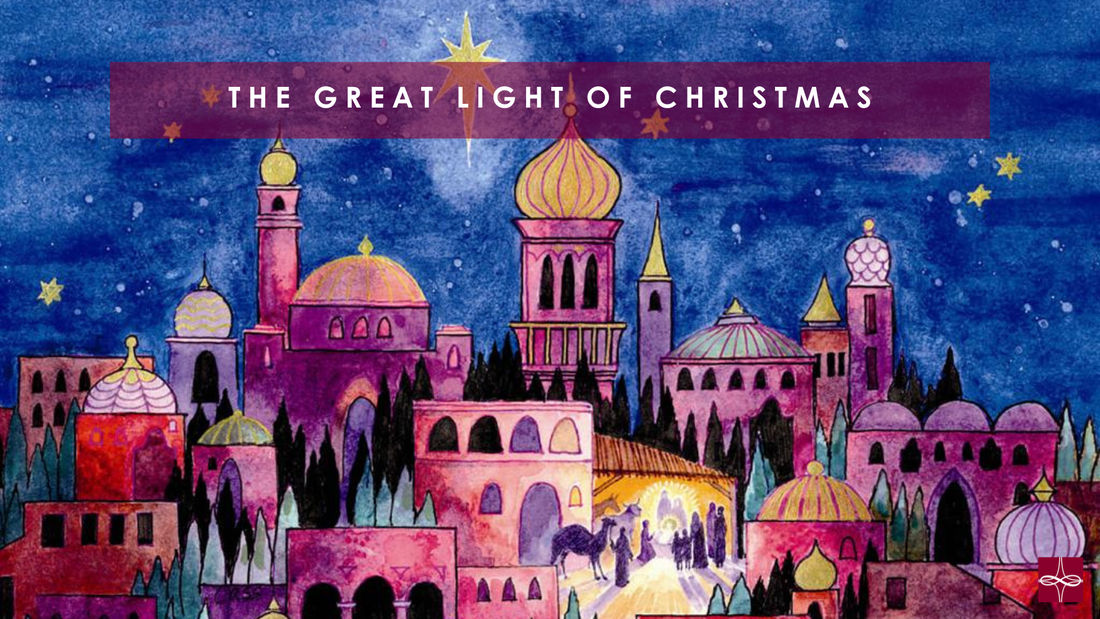
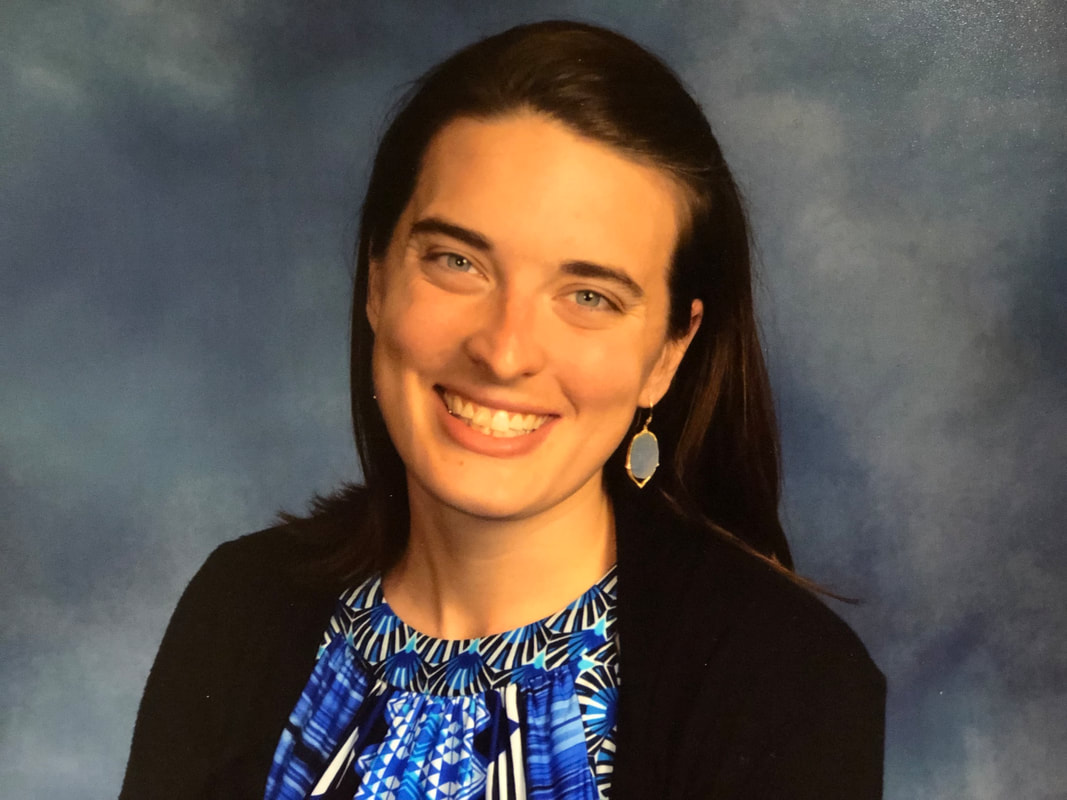
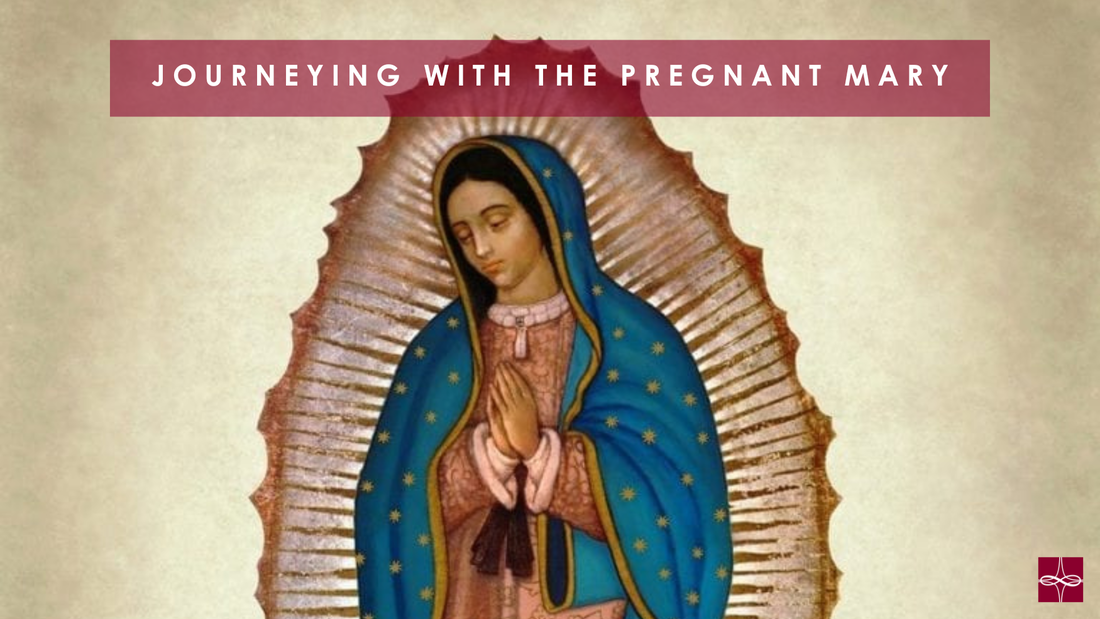
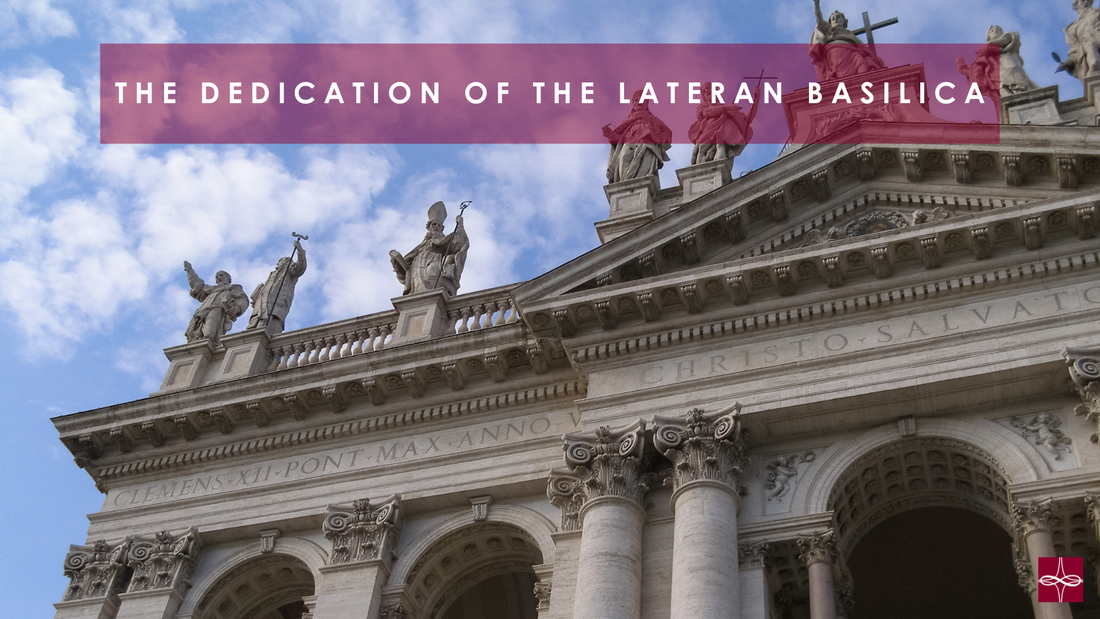

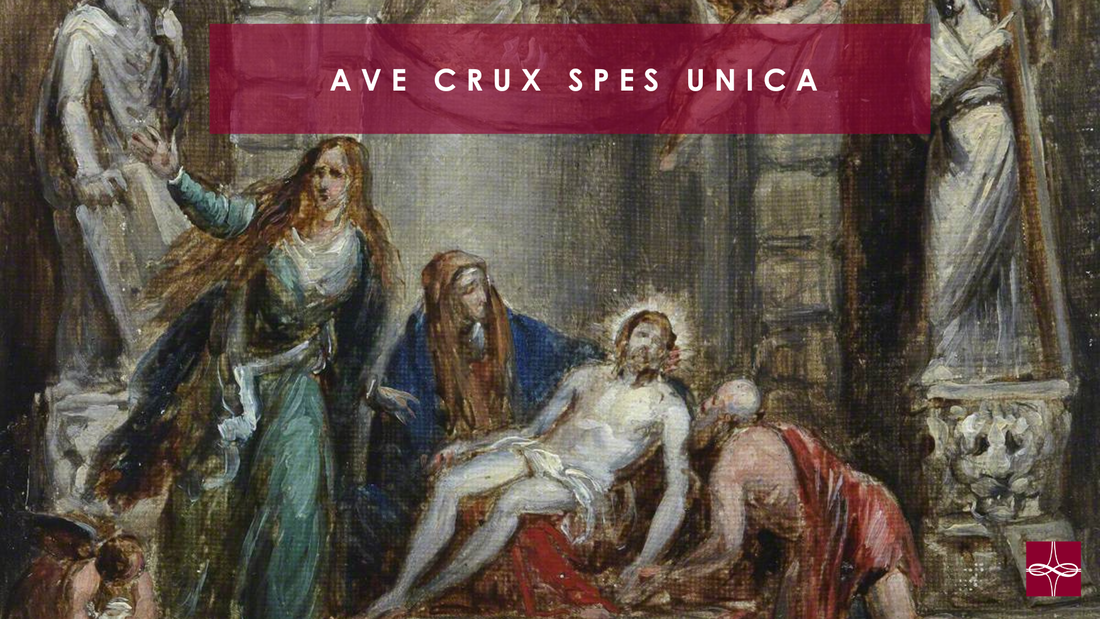
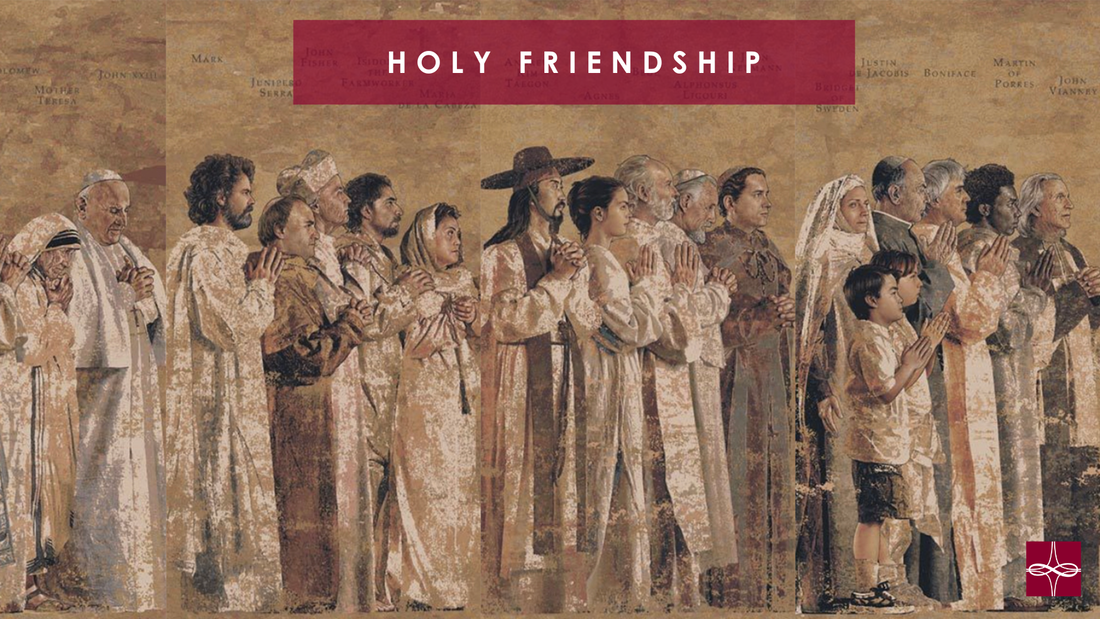
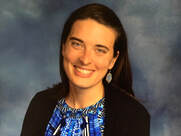
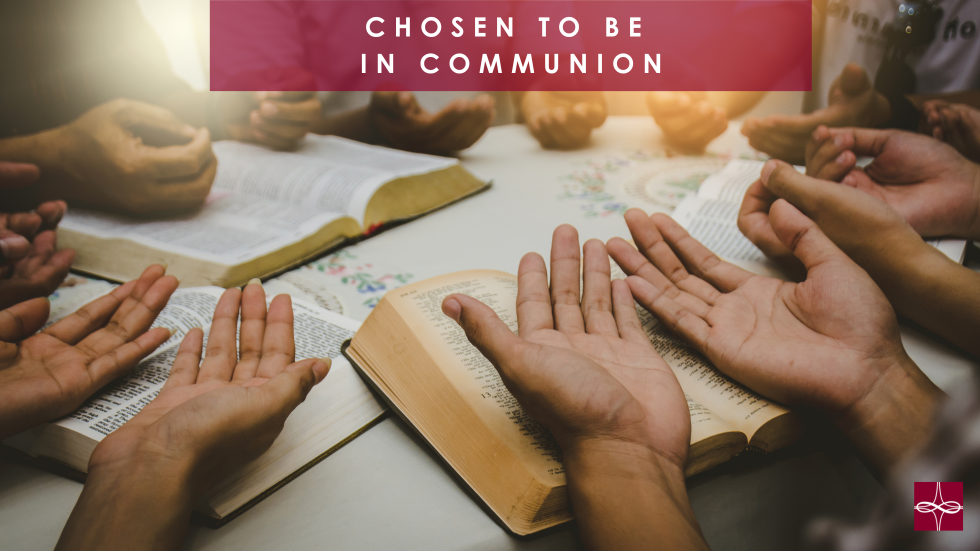
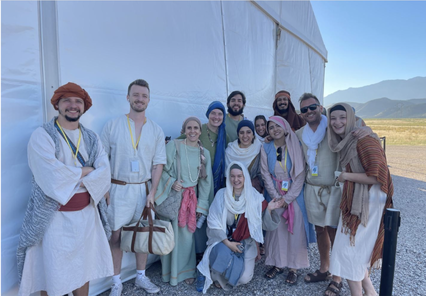
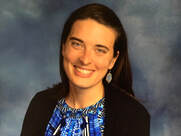

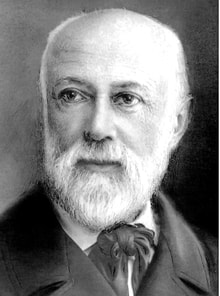
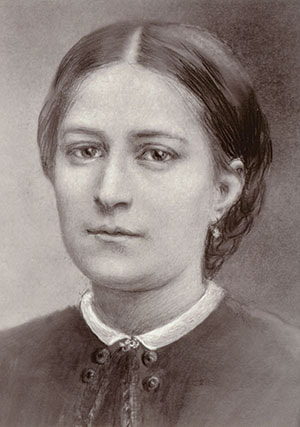
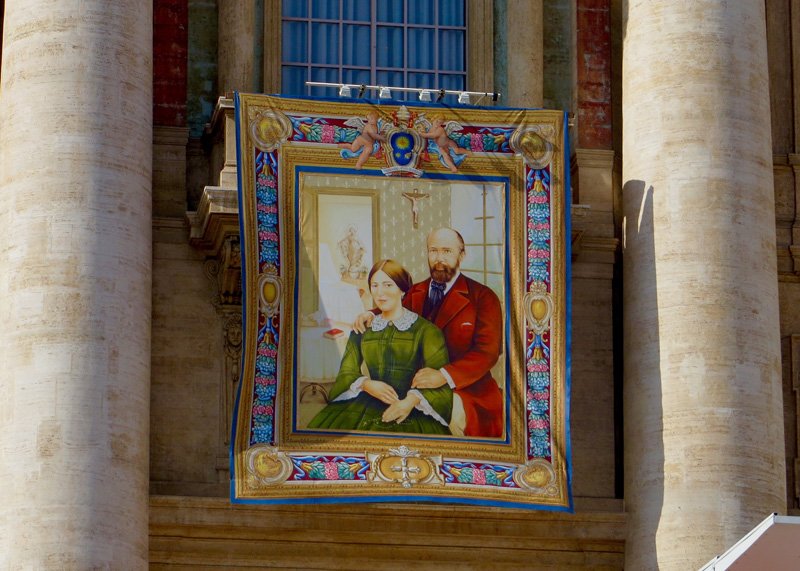

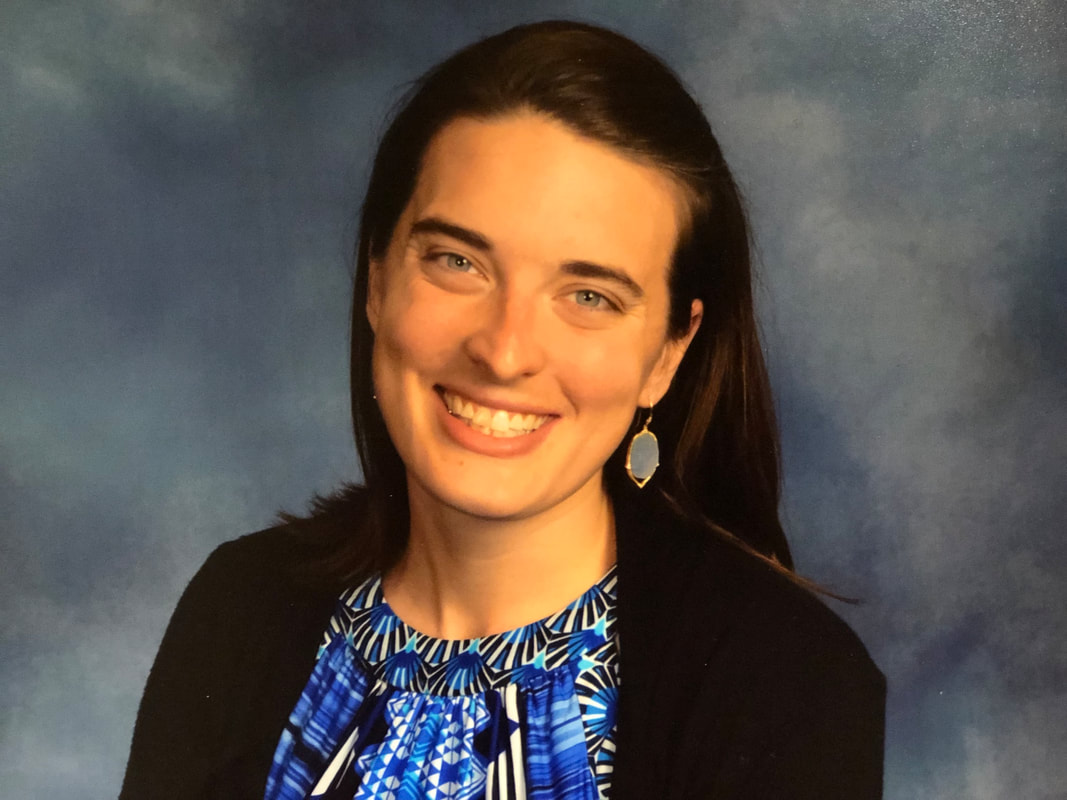
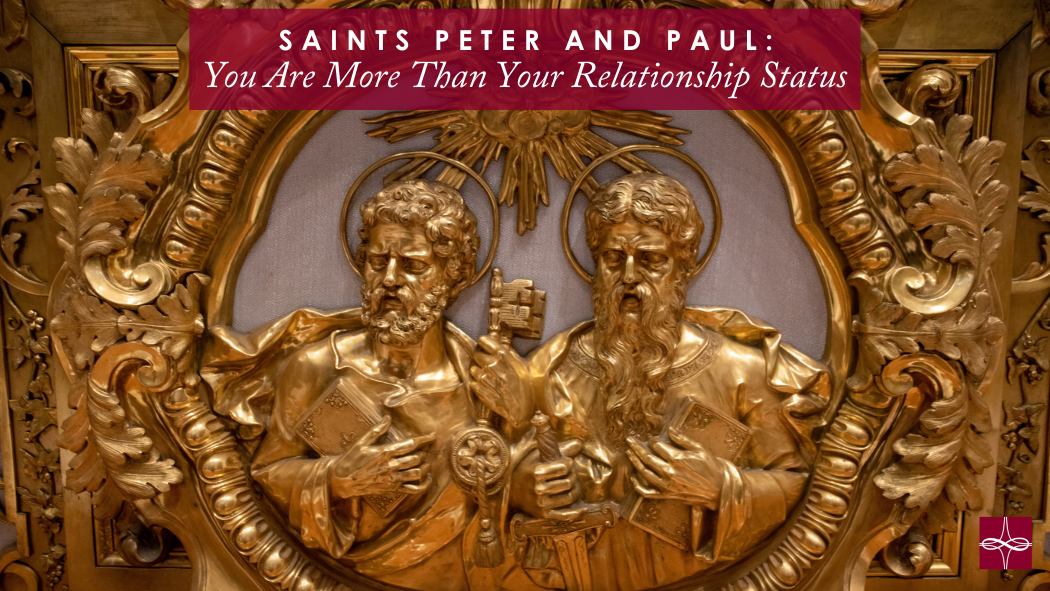
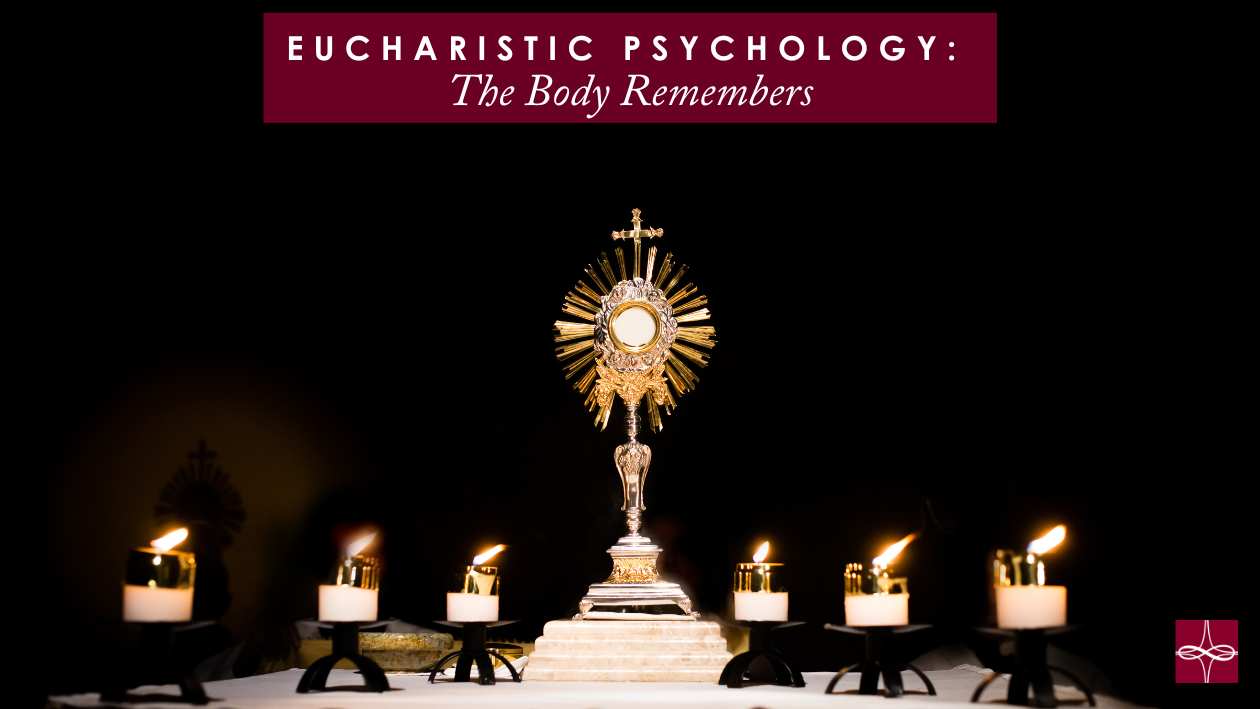
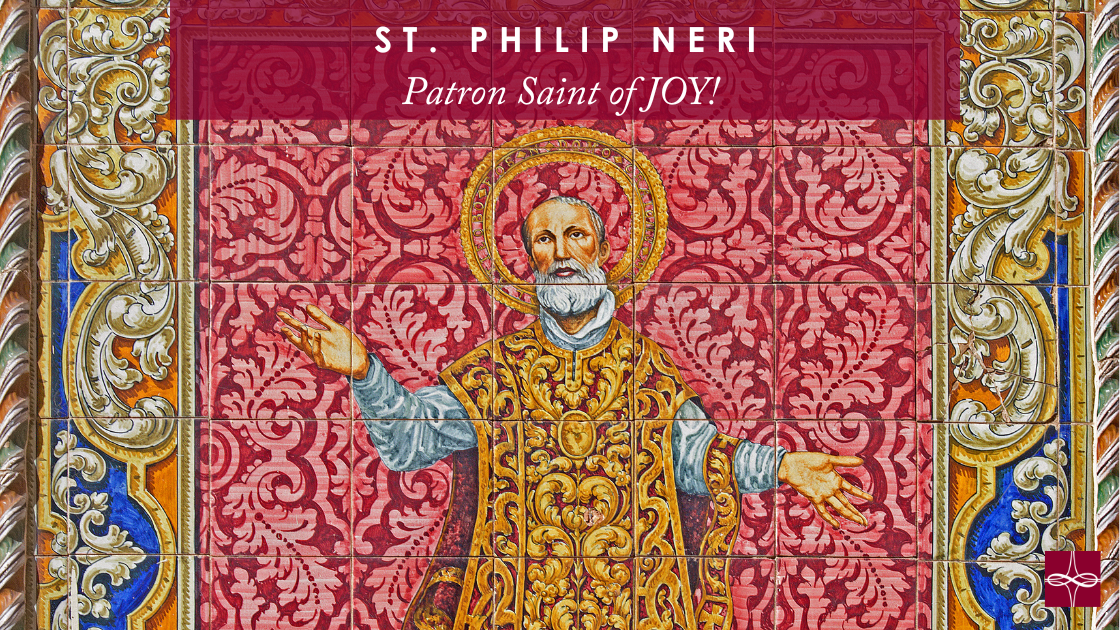
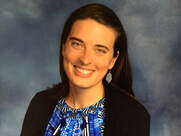
 RSS Feed
RSS Feed